This is the third and final instalment of a longer dialogue with Tony Dias in which we develop some of the themes that emerged in the first and second parts.
TD: One of the things I have been realising is that the better I get at not trying to do things, the more I actually get done. The key seems to be to sidestep directed thought, or what we assume to be directed thought. We just let things develop. Recognise when the moment is right and then just let it out without getting in the way.
I’ve finally fallen into reading Daniel Quinn’s Ishmael. All of the people and writers I now find absolutely essential I’d only marginally heard of just a few years ago. I don’t know if you’ve read it or not?
JDG: Yes, I have. It must be about two years ago. That was when, for the first time, a more coherent picture of history and human development came together for me. It was a wonderful book, I really enjoyed it. Sometimes when I like a book I buy a couple of copies, if I have the money, and share them with other people. I gave that one to my sister who also really liked it. Maybe if you tell me a bit more about what you’ve taken from it, it’ll come back to me as we speak.
TD: Overall it struck me like watching Bohm and Krishnamurti in a dialogue, or reading Ivan Illich. Wow! In these encounters it is so refreshing to find our situation taken as a matter of fact. There is no effort wasted defending, explaining, filling us in… At no point did I find blind spots either. It lead me all the way through. I never ran into a ceiling where I felt, “OK, it was good up to here…,” but then it just misses.
It is holographic in its dramatisation, in the way it was written, the premise of the story, and how it was told. These are all interrelated with his theme. Content and medium completely in sync.
He lay out our history with such clarity. Digging deeper, even beyond the ‘Leavers and the Takers’ aspect. The way the Book of Genesis is discovered as the work of those who lost. They described victors who later co-opted the story to brag about themselves without any awareness of how damning it all was. So many artistic and political movements have been named by their enemies. A name starts out being derisive and ends up becoming a ‘badge of honour’. That rang true.
The relation of guilt and sin has always been murky to me. How can we talk about it in a meaningful way? As Quinn laid out the origin of the Book of Genesis, and what those stories mean, it begins to fall into place.
I’ve always had this sense that guilt, and shame, sinfulness – if we look at our own direct experience – it has always been a reaction to dysfunction. To operating within a blinkered viewpoint and half knowingly blundering. An animal shame comes through at such times, trying to tell us, “This is not right!” Of course, it doesn’t explain why it is not right. This easily devolves into all these secondary manifestations which turn it into a pathology as Ego works to keep the story focussed on itself.
Quinn clarifies this. What is literally taken as original sin within the context of civilisation is in fact not the human condition, it is the civilised condition. The book does, what only a work of art can do, in regards to a – I’m going to use this term I got from Peter Kajtar – laying out a self-world-view. This differs from a world-view. It is something you cannot get from reading philosophy or any expository writing. It can only become visible in an artistic interpretation that presents an experience of a self-world-view that we can directly connect with. We come away feeling as though an experience has actually happened to us.
This has been tremendously invigorating. Another Serendipity: just the day before I left on that trip to Philadelphia where I came across Ishmael, I had started writing a post that I still haven’t put up on Boats for difficult times. It grew from this insight that seals are returning to Cape Cod. They bring Great White Sharks with them. There is an uproar over it! Fishermen have always been against seals. They insist seals eat them out of house and home. This brought me to a new question,
“Why have seals never driven a species of fish, or a fishery, to extinction while fishermen always do? What is the difference?”
The difference is that seals operate within evolution. This glimmer appeared just days before picking up Ishmael. Noticing a connection between what is wrong with civilisation and relating that to an attempt to evade evolution. In Ishmael this is Quinn’s other big premise!
This is where the post, Deep Denial came from. Just as with any drunkard, if we strip away all the excuses, how all our destruction has been a series of unintended consequences, we realise that, no, this is exactly what we had in mind. We’ve been getting exactly what we wanted. Our march towards extinction is exactly what civilisation has been about. This was implied from the start. It has been an attempt to evade evolution on a grand scale. Now, to end evolution, we choose Death over evolution. Death is the only way we can arrive at absolute control. It is only by killing everything that we can be sure of control.
JDG: That links directly to some things I’ve taken up in the last couple of weeks as well. If we feel a need for guidance what can we do if we don’t want to slip into control mode? All I can find is beauty, really, the beauty inherent in nature. Beauty which never presents us with choices but is a matter of turning to it and sensing when it is there in the moment. It is that thing which presents itself as – and this is probably something I’ve got from Andrew Taggart – that which fits the condition of wholeness. We’ve lost this in such a big way that we can’t even see it when it is there. That maybe why it is so difficult to talk about beauty. We don’t have a way to talk about it in our language. It doesn’t have a name.
This made me think of The Spell of the Sensuous, by David Abram. I had a similar feeling reading this as you did reading Ishmael. It describes, not so much the agricultural side of history but language and meaning, how we get into this time, this stage in civilsation, where we’ve become so literalised, so alphabetised, that our language has lost it’s anchor in nature.
TD: I read Abram a few years ago. I include him in my list of important writers. He points out one of the most interesting things about language, that ancient writing lacked punctuation. This was done purposefully, out of an awareness that if reading became too easy the written word would overwhelm us. Writing had to be puzzled out and read aloud. Only then were you able to discover its meaning as the words came into being as sound. This resonated with me. For a long time I have felt that every time we jump ahead and say “I know what he’s talking about” before we hear it, communication has broken down. There is also a wider sense that it is not writing per se that is at fault but these habits of mind of jumping ahead: Anticipation.
Let me just go back to the other point you were making about finding a way to navigate. You brought up beauty. I think this is on the right track, but the word beauty can leave us ungrounded. It’s another fraught term.
I’ve spent many years grappling with it. We need to understand the difference between freedom and choice. We expect that freedom equals having choices. Everything sincere and actual has absolutely nothing to do with choice. It has more to do with finding what has to be and accepting what has to be. Again this has all been twisted around and toxified, especially within Western religions. It has been mixed up with guilt and this reaction that it is a useless sacrifice to give yourself up to necessity rather than embracing choice.
This is all smoke and mirrors. Whether it be in art or writing or my relationship with boats, the ultimate draw in these activities has been the way they bring me into connection with what has to be. And that the whole process leads to disillusionment concerning choice and an acceptance of being open to what must be. To what is. Freedom comes when one fluidly realises this and acts on it.
This also connects back with the way denial is just one of the tools Ego uses to maintain its existence. Ego is an illusion. As Peter Kajtar says so well, quoting Bohm, “We all see a rainbow, but there is no rainbow there”. In the same way there is no Ego there. But Ego defends itself very well. When we are able to disarm it we realise that at these times we are not directing anything. We experience a combination of emerging, being, on the edge of emergence. Whatever is to happen next happens as part of this emergence.
There is no controller. And there is no choosing. There is no making judgements. We are used to using these terms to imply that what we do is controlled by a ‘little driver’ in our heads. He has minions, both within our bodies and in other people, and all sorts of means to fulfill his ends. But when we dissolve our way through all this, all of these habits can melt away.
When we do – and I’m amazed at how well this can work – these habits can fall away. Our energy and our efficacy is revealed. It points towards something we admire in what we call nature. It points to what we admire in other creatures. Again, whether looking at a star, a tiger, a tree, or a rock: there is an inevitability to them. There is a factness to them, a completeness. They are so – we could use the term beautiful. But unless we clarify what we mean by it beauty ends up being… It needs to be won back from the dark side. There is an easy linkage between tyranny and a controlling aesthetic. Hitler was an artist, remember. National Socialism was held together by a horrible and terrifying aesthetic, one of the most cohesive aesthetics we’ve ever seen. It joined the urge to control to a perversion of a sense of beauty so that its aesthetic could guide all action.
JDG: This connects with what you were saying about Ishmael and what it, as a work of art, did for you. That what we can learn from art is having an experience – this relates to another conversation I have with an old friend, a dialogue around time, looking at different temporalities. His experience was that listening to different works of art and engaging with their sense of time taught him something in relation to the way he sees the world and his immediate environment. Noticing different temporalities moved him towards a deeper understanding of what is. And this is maybe what art can help us do. This process is really interesting. What is going on here? Is it possible to facilitate this experience?
TD: Yes. You used the term ‘facilitating’ before and, you see, I’m afraid this is where we let the our assumptions bite us.
JDG: Right.
TD: We don’t ‘facilitate’ a tiger or a flower blooming. I’ve been poking around at the edges of terms like salvation, our habit of thinking that everything and everyone needs to be ‘saved’. To use Quinn’s terms, that’s just ‘Taker’ thinking. To return to the insight at the centre of that post Mourning for the World, about the Gulf… The lesson of the world, of creation, is that there is nothing out there that requires salvation. Whenever we try to – and again, this is the language of striving, the language of Ego – it is always fixing to find a way back in. It’s an annoying Eric Cartman trying to weasel his way into the conversation every chance he can get!
Ishmael, the gorilla, embodies a response to this. The human narrator, I can’t remember his name – if he has one – falls into these traps repeatedly. The gorilla gives him one of those looks. One of those gorilla looks. It’s all right there; in his presence, in his size, in everything about him, his smell, everything. And that’s the answer to any kind of wheedling, bargaining that Ego keeps trying to make to re-introduce itself into the conversation.
You see, I just think this is… in all of the conversations I’m involved in, and where I’m at, and where I see others to be at at this point; I see this as being the big issue. You know, I mean hopefully it will evolve over time and certainly for me it has changed over time. But right now, and for a while now, it seems to be focussing in on exactly this point. Weeding out the ways in which our habitual Ego response keeps trying to bring itself back in.
JDG: I am with you! Let’s drop facilitation and try a different metaphor. What I mean is something akin to what Zen masters do when they do that switching move, the eye-opener move, that turns the world on its head and shows that how we look at things is a matter of convention.
TD: Art has survived because it was co-opted by power and became its toy. Boats survived the same way, interestingly enough. It is essential in recapturing what art can be that we let go of this connection that has become automatic between Art and Ego. We expect and assume that the artist must be the greatest egotist on the planet.
That was a great struggle for me with Art. It drove me away from painting for a dozen years. I couldn’t find a way around it. I felt too endangered by the urge to succumb to it. Stuck at this impasse I had to wait. To wait it out.
When thinking about art we need to forget 99% of what we all assume art is. When we have a visceral connection with a cave painting, a thirty-five thousand year old cave painting, we are aware of a continuity. There was no art-scene then! None of the claptrap that has clotted art since existed then.
All that is essential to life… if we look back through history, it is as though the fewer advantages people had, the more they took seriously what really mattered. And the better they did what really mattered. As we come forward to the present, it is just ridiculously lame the way a people with the greatest advantages of all time cannot do the simplest things with any quality.
Here in New England I’ve always been struck by old, rural vernacular architecture. It is probably quite similar to what you are used to in Denmark. Eighteenth, nineteenth century churches in small towns and villages. These people had no surplus. They lived very close-to-the-bone. They had no leisure, no learning. They created these wonderful structures! These structures speak to us with a fluency that so-called architecture never has, never in the last 150 years has architecture been able to touch it.
The same goes for the quality of food in a peasant village, or a pair of Inuit snow goggles. Anything made by them! These were a people with the least advantages of anyone on the planet. Yet everything they touched is filled with beauty in a true sense. A wholeness. There is no Ego there.
I was in Philadelphia recently. There is a wonderful collection of Shaker furniture and a Shaker room transplanted into the Philadelphia Museum of Art. The Shakers invented mass production in one way but at the same time they were making things without Ego. When we stand in a Shaker room, every molecule in the space of that room sings to us through its proportions. There’s a fractal quality to it. Just look at the way they used Tiger Maple grain. How a piece fits into the room etc. etc. It’s as if their rhymes go right down to the molecular level. There are galaxies to be seen within the wood grain. This opens up our sight into the sub-atomic level. There’s a quantum quality to their spaces!
This is what Bohm was talking about in the implicate order, in the holographic quality of the Universe. It comes across in Art made free of Ego. You can’t strive for this!
JDG: There is an all-around presence. That’s what my friend was conveying to me in discovering the timescape he moves within. It is in the presence of everything around us that we experience, that we are being with the world without Ego.
TD: And without mediation. I’m just letting what comes out come out. I haven’t thought about this in this way before. I just wrote about mediation and immediacy in response to attempting to watch a video of a ritual at this year’s Dark Mountain Festival. “You had to be there.” Mediation is another entry into the action of Ego. How Ego inserts itself between us and our experiencing life. Im-mediate means without mediation. There is a direct link.
There is value in some aspects of the framing nature of art. Of setting it outside of regular experience. Just now as I talk I’m wondering whether this is again also just an artifact of having to cope with civilisation. Is art existing outside of this dysfunction mediated? Or would it also be immediate….
Cave painters went to a lot of trouble to create art in extremely inaccessible places. They put a lot of effort into framing what they created by putting them deep in caves. But on the other hand, when they were in there before the work their experiences of their art was immediate. This brings up another term that has been really important to me lately: Sincerity. Again, rescuing it from the toxicity it’s been mired in.
I keep coming back to this memory I have of a home-spun, home schooled boy. He was artless in so many ways. I remember his first day on our school bus. He spent parts of a few winters at my grammar school. The same thing as in Ishmael… There was the conflict that arose in the contact between Sincerity and ruthlessness. The way Sincerity seems unable to survive this contact. We need to find a way to be strongly sincere, so we can, not only survive this contact but somehow….
JDG: Both your point about Sincerity and mediation connect with an experience I had this summer. I went walking with three friends up in Thy, in Northern Denmark. We went along the beaches. All of the Western coast is sandy beaches and dunes. Behind the dunes there is woodland. We hiked and slept in the woods, just kicked about for three days.
One of my companions was a childhood friend and the other two were friends of his. Between the four of us we managed over three days to miscommunicate to the point where it affected, not only our group dynamic, but each one of us! We had to stop regularly to decide whether to go right or left around some dune, everyone had their own ideas. My response was to say, “Look, there are too many chefs here! I’ll step out of the process. I’ll follow whatever decision you make.”
But this was misunderstood. I found myself in a situation where my having taken that position became another source of misunderstanding between us. It was very strange. At the end of it, I think some of us felt like, “Oh, we’ve travelled all this way and wasted our time!”
I had a wonderful trip. Just being out there in the woods charged my batteries. But afterwards, I wondered what went wrong.
There’s a big lesson here about communication. I felt like it was difficult to be sincere and not be pressed or squeezed into an argumentative or defensive space. This encapsulates so much of my feelings about being in Academia as well. But more generally this same problematic can arise with colleagues and friends alike. It’s hard! We often get squeezed back into conflicts even when we try to step out of them.
TD: Yes. Your situation there seems to have encapsulated the wider drama within your life right now! This is what you are confronting. A growing sense I have is that as we become more aware of all of this, it does get a little easier to see when others are projecting. We can begin to see when we are projecting. We can then step back from our share of it.
The last thing that anyone caught up in a projection wants is to have someone spoil it for them. That’s why Sincerity is attacked. It’s because sincerity is the greatest rebuke to Ego there could be. This has a way of playing out that just has to happen as it happens. It can’t be pre-planned. The defense of Sincerity is that it needs no defense. By being matter-of-factly sincere we can… you mentioned the Zen master’s flicking, it can be a form of that.
When it works, it seems to me, it works without drawing the eye of the person projecting, or in delusion, to fixate on us as the cause of their discomfort. No one is delusional because they are happier that way. Delusion is a victimisation. Abuse is a cycle. Every abuser has been abused. It just goes on and on and on. There is no real advantage to anyone in defending their denial. Their organism is ready to bubble up and show itself at any moment.
If only we can practice Sincerity without defending it, without drawing that projected animosity towards us. Imagine a group of kids. They are manically playing a certain kind of pretend. They run into someone who just doesn’t engage. Their pretense withers away.
I’m not interested in carrying this too far or making too big a point of it.
JDG: Communication is important. It links back to some of the things we have talked about around the process of ‘uncivilising’ or ‘unlearning’. We need to be really careful with these terms. We don’t want that striving feeling!
TD: Yes. It is just so tied up with any directive use of a negative. I can’t use that language anymore. It points at the finger that is pointing!
JDG: Yea. One of the points that I have tried to make in that discussion is that there are two movements going on. “There is a civilisation we are trying to walk away from.” And there is a different movement going on at the same time which isn’t a walking away. We can also step into a different way of being that doesn’t require striving or rejecting. It isn’t in the future. It is being present with us now. Maybe it is like learning. It is a craft! It is a skill.
TD: It’s art, craft, and practice. The development of a self-world-view. An integration of people who are currently disintegrated. This includes all of us. It happens one person at a time. It is, first, an internal awakening. At a certain point – which is different for everyone, it shows itself in different ways for everyone – it branches out into dialogue and creativity. These are the actions of integrated creatures. They dialogue and they create. This results in the beauty we admire around us.
It is a sign of our re-integration into evolution, to use Quinn’s way of putting it. All of this defensiveness about focussing and this talk about putting energy into explaining what’s wrong with whatever is out there now becomes self-defeating pretty quickly. It is an attention hog. It holds our gaze on a mirror where we are looking at them. It does not help us focus on what we can do. For each of us, what we can do starts with how we focus our attention. How we untangle our attention from this mess. How we use our attention to re-integrate our selves.
As we re-integrate, we find others who are re-integrating. We find ways to connect. But all of this just happens. It isn’t planned. It isn’t led. It isn’t a movement. It isn’t a discussion. It’s not a set of choices. It is none of those things. It’s an unfolding, an emergence.
JDG: I’ve recently used that term more, emergence. I think it describes well the moment when we tune in and things come together. This process is really interesting. How this happens is intriguing, but I’m not quite sure how to say it yet. I’m not sure that I’ve developed a language for it yet.
TD: It just dawned on me to notice the connection between a term like uncivilisation and calling a group combatting alcoholism, Alcoholics Anonymous. In both cases we are just pointing back at a dysfunction and giving it centre stage. Something like Alcoholics Anonymous, the whole 12 step idea, has a certain vitality to it. In that it connects with the ways habits change and the ways we can deal with our animal shame and all of that. But in the end Ego still wins. At the end you stand up and say ‘I’ am an alcoholic. So every part of that is still totally fucked….
JDG: Even if the person stops drinking it has been a ‘battle’ that an ‘I’ has won!
TD: Claiming ‘I am uncivilised’ would be equally screwed up.
One other thing about communication. Within a dialogue, what is happening is a mutual tuning into a field of intelligence. When we’re not negotiating with each other, sending data back and forth, we are reading each others minds. And, reading a Mind that exists between us. This is one way of looking at a recurring point of Krishnamurti’s. I was always struck when he’d say, “This is not about opinion!”
This could sound very arrogant. There is another way of looking at it. What we’re getting at, at this point in Dialogue is that we are in contact with fact. We are not within the realm of choices. It isn’t opinion. What comes out is the product of Mind, a Mind we are reading together, bringing into being together. Communication pales compared to this.
JDG: It reminds me of an article I read this summer about the grandson of Sitting Bull. For a long time had to hide who he was. He was smoking and drinking for a large part of his life before his return, his coming back, to the world. He told a story about his childhood. A group of elders would come around. They would just sit in his mother’s house. Just sit in silence. Then all of a sudden, they would all burst out laughing at the same time! That was their level of connection!
TD: It shows how far we’ve atrophied and the level of our dysfunction. We must not lose sight of how crippled we are. Not in a damning way, in a compassionate way, in a forgiving way. We need to not lose sight of why it is so easy for Ego to jump back in every time we try to take a step. We are crippled. Those people had been immersed in life forever, back to the first moving set of molecules. Within them they had all this at their fingertips. We can’t expect it to work that way for us. We also can’t give up on working towards regaining it. This is not a question of striving.
For instance, this individual, his descent into intoxication. That is our history! Descent into intoxication. How do we come out of intoxication? I just think more and more that intoxication is an important way of looking at our history. A history that developed within a series of intoxications.
This is another way of looking at why I have no patience with the language of movements. Because in the end they are all intoxication, a distraction.
JDG: It is interesting that now that I’ve been taking part in Dark Mountain for more than a year all of what has been rewarding has been in this mutual sense of exploration. Now this is back to how I am identifying certain ways that people enter into this conversation. How this conversation is an organic process that starts from mutual understanding. Sometimes it goes wrong. And when it goes wrong, it is interesting that there is a parallel to what happened to me this summer. Also to what you were saying about how we get focussed on the mess, on uncivilising as walking away, rather than on stepping into the world.
And there are some people who come for the movement or for…
TD: The intoxication.
JDG: Yes, they come for the intoxication. In a way maybe this holds it. Maybe it crystallises it. The difference between when it works and when it doesn’t.
TD: This is one of the lessons of the 20th century. Intoxication is a dead end. Just look at the cultural history of the 20th century. The 20th century, through its excesses showed us all of the paths that are closed to us. Government. Military. Institutions. All those paths are closed. The 20th century showed us in spades how they lead to mega-death, mega-destruction. How they are all just totally wrapped up in intoxication in one way or another.
But I was just going to say that Ishmael, the gorilla. His end… I don’t know if you remember this but the narrator doesn’t realise, he forgets how old Ishmael has become. He is in nasty circumstances living in this side-show in cold weather. He catches pneumonia. Ishmael accepts the offer of a blanket, a dirty blanket, but beyond that, he doesn’t want anything else from the narrator or from anyone else. It reminded me again of that image of the whales or the dolphins swimming through the oil. They do not need saving. They are doing what they can under the circumstances. It will all come to an end, as everything always does. They are not looking for salvation. They are not looking for an escape pod or any way out of this. They are there. They are present. They will pass through a transition and whatever is left will continue to be present.
It’s our inability to see this. When you bring up Sitting Bull, that moment, all through the first half of the 19th century at least into the 1880’s, the genocide of the native Americans. The example you have from their side, in case after case, is of that same quality Ishmael shows us, sitting with his little blanket but not thankful for it. He is saying, “I don’t need to be saved by you. What I have is sufficient.”
JDG: In a way it is our fear of own death that makes us act the way we do.
TD: Right. Fear of death is tied inextricably to it. Over the last couple of years, in dealing with my own chronic anxiety, something I had as far back as I can remember but which has finally lifted. What I’m realising is that it is not ‘us’ that are anxious, it is Ego that is anxious. When you dispel Ego the anxiety goes away. The death we fear is the death of the rainbow. But there is no rainbow. So what do we fear? There’s no ‘there’ there, in our fear of death. It is a projection of Ego.
This may be easy to read, or easy to see; but as with all of this, it has to become embodied, to be felt as real. I’m not certain I have reached that point, but I know I’m much farther along than I ever was. One of the things I heard a long time ago was that we spend our lives dealing with getting past our fear of death. If we are lucky, we do so before we die.
Fears – right away we are in the realm of Ego.
JDG: I think I was lucky in my life that I had different situations where I was able to face the fear of death in a head-on manner. I realised that I wasn’t so afraid after all. I don’t really feel afraid. And then the last month, or the last couple of weeks, since my grandmother died…. There are two things which are very important to distinguish. On the one hand, I personally don’t feel that I’m afraid of death. On the other hand, there is sorrow, which is a very different thing. That emptiness which is left when someone close to us dies is not to be confused with fear. I felt clarified about her death, but then, there is still the emptiness afterwards. This is a legitimate pain we feel. This is the same pain we feel when we see the dolphins and the whales swimming through oil. But we shouldn’t project our own fear of death onto them. Strive to ‘save’ them, or try to arrange things in a way that we will feel another person’s death would be more easy to take. It is that other’s death! We have to have respect that.
TD: Exactly. As we head towards compassion, empathy, we discover that loss, and all of that pain, pain itself is part of life. Pain is real. Compassion affects how we deal with pain. But as soon as we give into fear, we let Ego erode compassion and destroy our integration with life. This cascade of destruction begins again. It shows itself at one level as a choice, but there is no choice. When we see this clearly, that there is no choice…. Who would choose to follow fear when we see this with any sort of clarity?
This is not the same as being afraid. Being afraid, being in pain, these are real. There are ways to confront them, but; looking for an escape-hatch, looking for salvation, looking for something to remove us from this life instead of compassionately integrating ourselves more and more into life; is a false choice.
The real challenge we face is finding ways to interact that don’t fall into our old habits. We have to take both continued isolation and/or involvement in movements as warning signs, signs of failure. The time for that is coming to an end. What we do needs to evolve into something collaborative. Collaborative in ways that emerge, in ways that can’t be pre-established. Any attempt to control how they might develop will lead into futility, into more of the same.
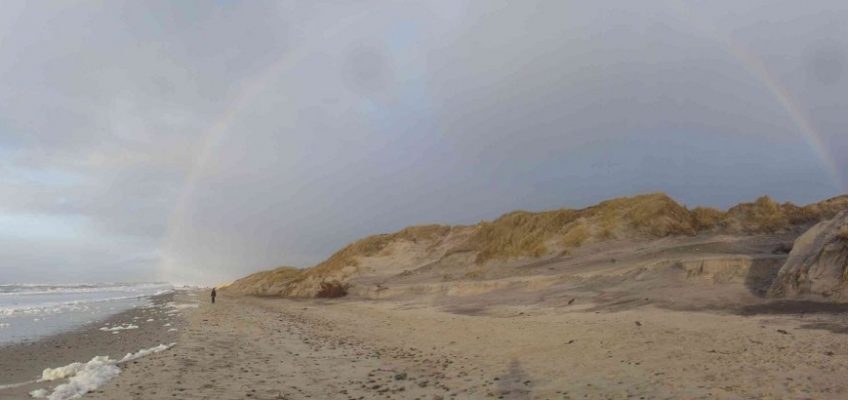
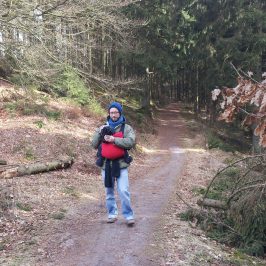
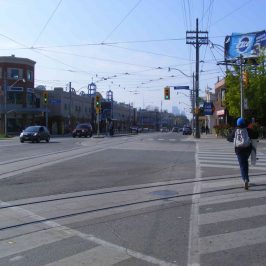
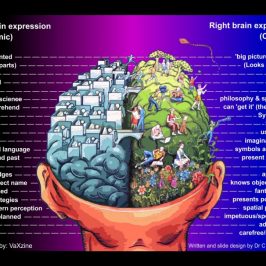
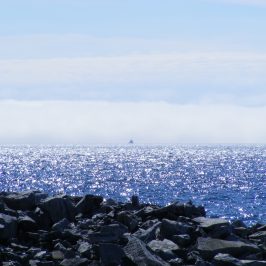
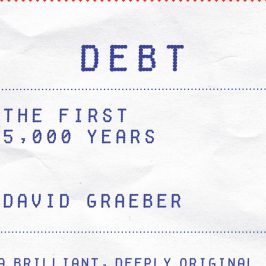

Daniela
“We need to understand the difference between freedom and choice. We expect that freedom equals having choices. Everything sincere and actual has absolutely nothing to do with choice. It has more to do with finding what has to be and accepting what has to be.” – I couldn’t agree more. This is a really difficult concept for most people to get to grips with, so often confused with “giving up”, and one of the most important realisations I feel I’ve had.
This is a wonderful conversation, it made me really happy to read it! Am also very interested in the ideas around beauty, a word I use a lot, in full awareness that what I mean by it is often misunderstood. So many rich layers to think about here!!